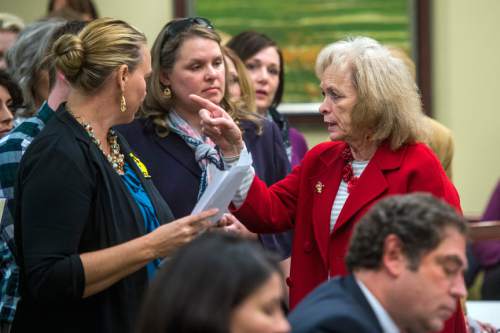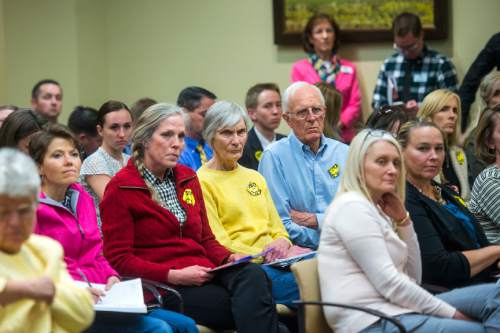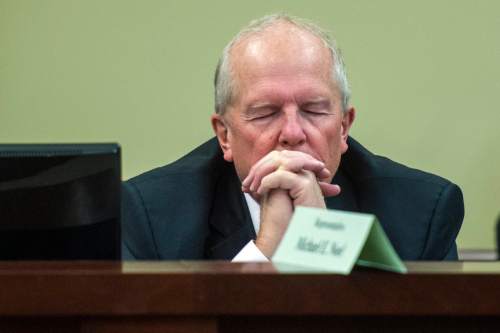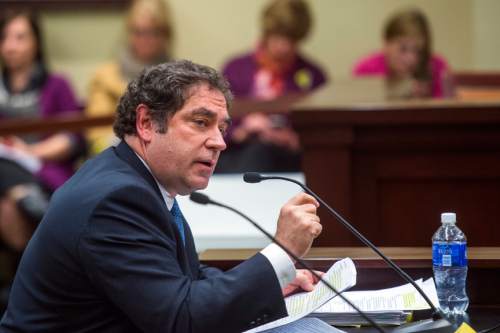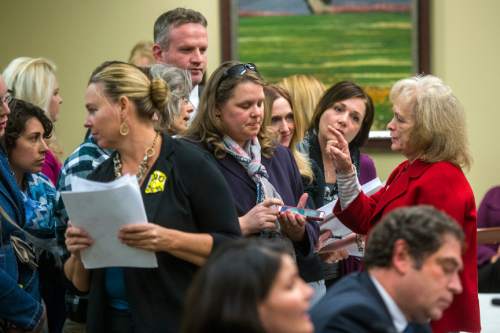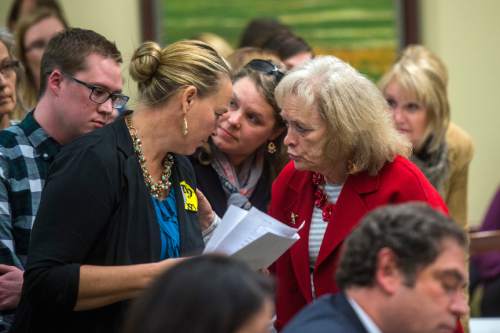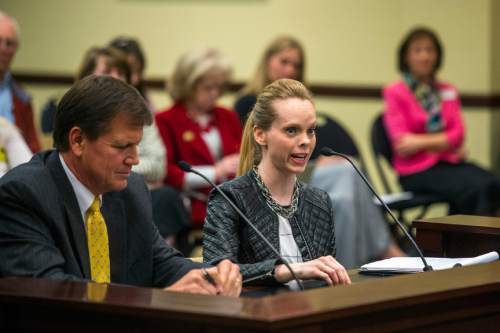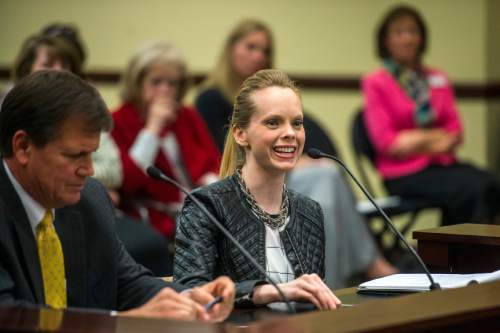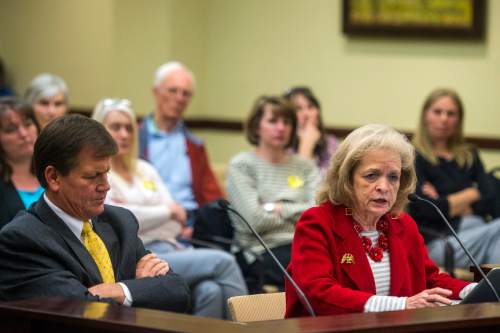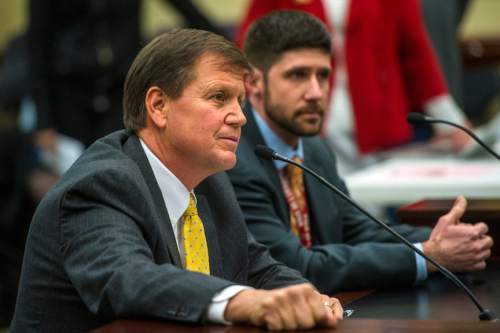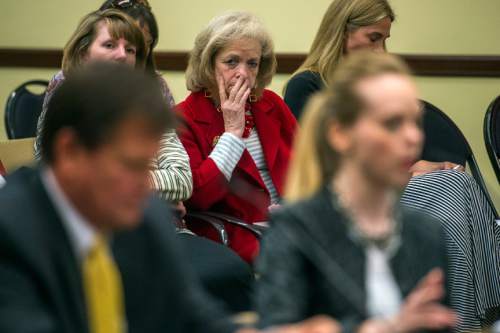This is an archived article that was published on sltrib.com in 2016, and information in the article may be outdated. It is provided only for personal research purposes and may not be reprinted.
Utah's sex education classes will remain abstinence-based after the House Education Committee on Tuesday voted against a bill to make the courses comprehensive.
The committee also adjourned before voting on a bill that would change the current option to excuse students from sexual-abuse prevention training to a requirement that parents give prior consent before their children participate.
In both cases, the debate centered on what information children should receive and the role of parents.
"The reality is the vast majority of parents are their children's greatest protectors," said Laura Bunker, Utah chapter director of United Families International. "We need to maximize that tremendous resource."
Bunker spoke in support of HB335, sponsored by Orem Republican Rep. Keven Stratton, which would switch state law from an opt-out to an opt-in for courses on sexual abuse prevention.
Those courses are set to begin this fall, following two years of development, and advocates say requiring the prior consent of parents would make it easier for abusive family members to prevent vulnerable children from learning about appropriate and inappropriate actions.
Salt Lake County District Attorney Sim Gill said that of the county's child abuse cases, roughly half are committed within the victim's home and one-third are committed by a parent.
He said he could not support Stratton's bill, saying it would impede vulnerable Utahns from learning to recognize abusive behavior.
"We should not allow offenders to so easily control their victim's access to information about what is appropriate physical contact and what is a crime," he said.
And Deondra Brown, a victims advocate and member of the musical group The 5 Browns, said allowing the opt-out status to continue does not interfere with the ability of a responsible parent to support their child.
"As a victim myself, I know firsthand the importance of as many children as possible receiving this education," she said. "I look forward to attending these courses with my daughter next year."
But Stratton argued that requiring parental consent would make parents more aware and involved during the "maiden voyage" of the new courses this fall.
"Because of the sensitivity and what is at stake here," Stratton said, "we really need all hands on deck and the intent of the bill is to encourage that."
Rather than vote on the bill, the committee members voted to abruptly end their meeting. Without committee action, the committee chairman has discretion to place Stratton's bill on a future agenda.
But Tuesday's meeting was the end of the road for a comprehensive sex education proposal by Salt Lake City Democrat Rep. Brian King.
Utah law currently allows schools to provide minimal instruction on sexually transmitted infections and contraceptives, while encouraging abstinence from sexual activity before marriage.
King's bill would have opened the door for more robust conversations of human sexuality, with parents required to opt-in their children to those courses.
He said allowing trained educators to provide evidence-based and age-appropriate information on sex would reverse the rising levels of chlamydia and gonorrhea in the state, as well as reduce unplanned pregnancies and abortions.
"I defy any reasonable person to come up here and say those are not positive, important, good things for our kids to have taught to them," he said.
But several members of the capacity crowd came forward to oppose King's bill, including Kimberly Ells, president of the Utah chapter of Family Watch International, who criticized the content of sex-education programs around the country.
"Children are taught various ways to obtain sexual pleasure," she said. "They're taught sexual behavior is their right."
But an equal number of Utahns spoke in favor of King's bill.
Jose Chacon, co-president of Salt Lake Community College's Students For Choice said that "sex is everywhere," and children can either learn from their friends and the media or from trained educators.
"Teens do choose to have sex," he said. "We should not be restricting information from them."
The committee briefly debated recommending the bill be studied during interim meetings of the Legislature. But Kanab Republican Rep. Michael Noel instead made a motion to advance the bill to the full House, while adding that he intended to vote against his own motion.
The legal maneuver ensured that King's bill would be definitely defeated, and was supported along party lines.
Twitter: @bjaminwood


